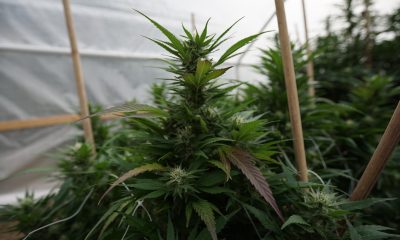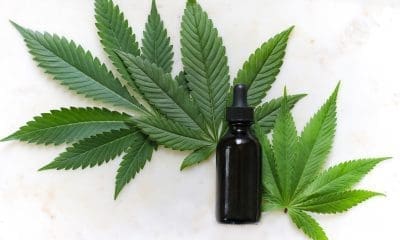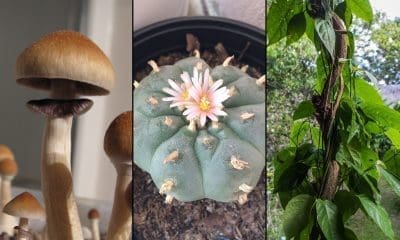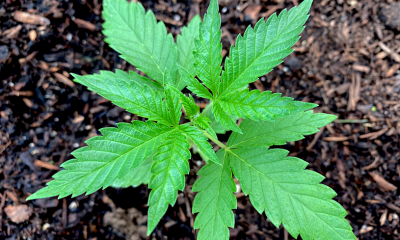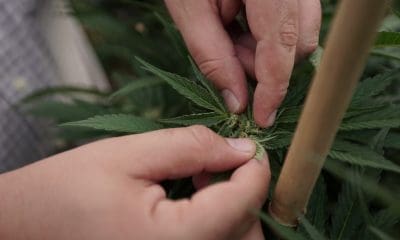Politics
Virginia GOP Lawmaker Files Marijuana Sales Bill For 2023, Eliciting Mixed Advocacy Reactions
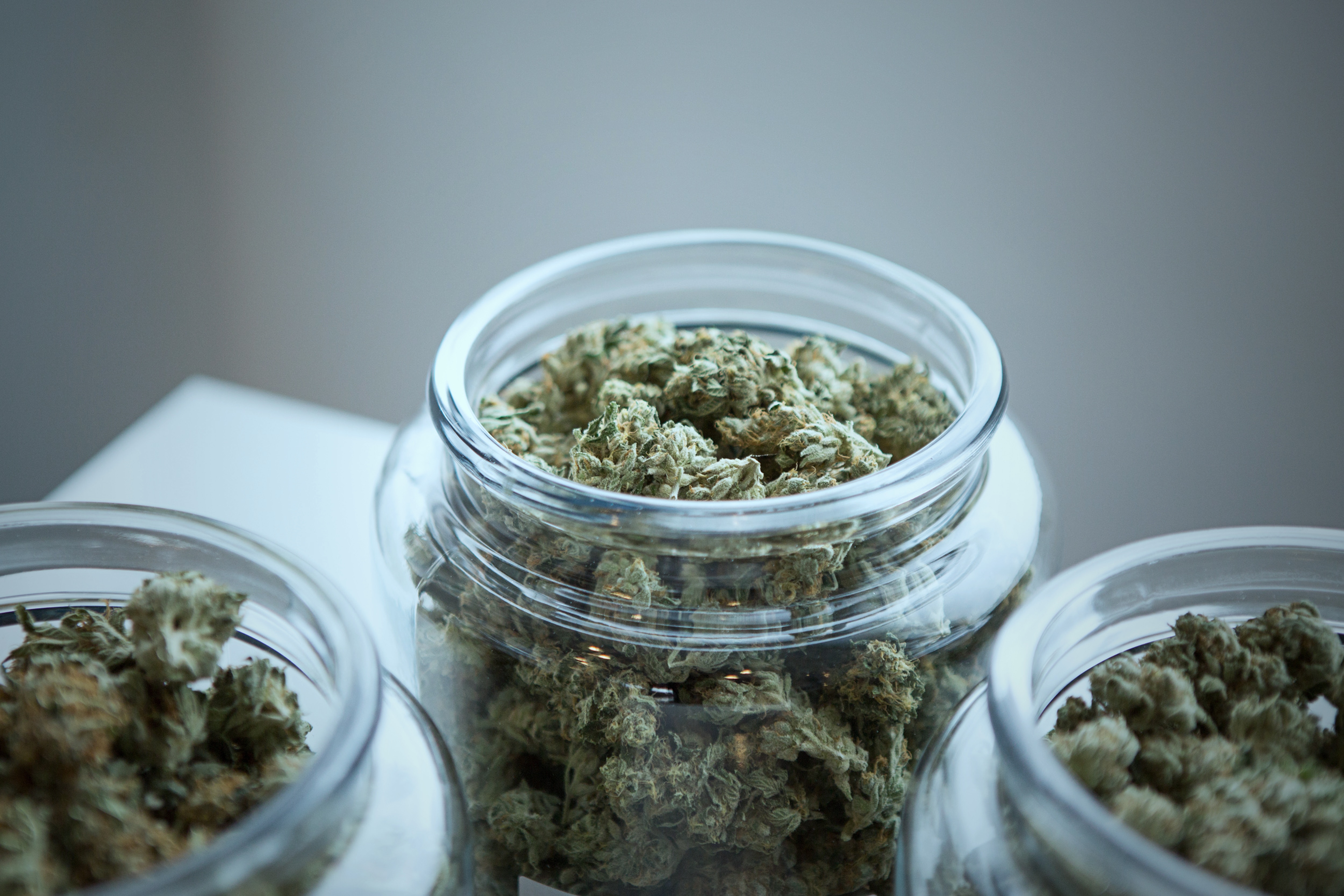
A Republican Virginia lawmaker has filed a bill to create a regulated marijuana market in the Commonwealth, but it’s drawing mixed reactions from advocates, some of whom view it as a giveaway to large, multi-state operators at the expense of equity for people harmed by the war on drugs.
Del. Keith Hodges (R) introduced the legislation, which would build on Virginia’s current law that allows legal adult-use cannabis possession and personal cultivation by establishing a commercial marketplace.
Advocates have been pushing the legislature to take the step to allow sales to begin. Lawmakers did include regulatory language as part of the legalization bill they passed in 2021 under full Democratic control of the state government. However, those components were subject to reenactment by a future legislature, and lawmakers didn’t do that in the 2022 session that saw Republicans back in control of the House of Delegates and governor’s office.
What this latest proposal, HB 1464, would do is amend the previously passed regulatory provisions, giving legislators an alternative model for the market. Some have defended the measure, arguing that the revised language provides a necessary and practical path forward to finally give consumers access to regulated products under a partially GOP-controlled legislature and administration. Others find the changes, particularly as they concern social equity provisions, unworkable.
The bill proposes to remove language that calls on regulators to develop standards on prioritizing social equity applicants. Instead, regulators would need to consider ways to prioritize any applicant who intends to operate in a historically economically disadvantaged area, rather than those who are from such an area.
It would also delete language that calls for a cannabis business and equity task force to develop requirements for prospective multi-license holders to submit “diversity, equity, and inclusion plans,” for example. And it would delete an entire section that lays out social equity license applicant criteria such as ownership by people with prior cannabis convictions.
“It’s a major shift to replace policies empowering people in communities harmed by the drug war with new financial benefits for corporations who locate their businesses in disadvantaged areas—essentially bringing in outside companies to target poor people for profit,” Shaleen Title, founder of the Parabola Center, told Marijuana Moment. “These predatory tactics are neither new nor equitable.”
Similarly, the group Marijuana Justice Virginia said the proposed legislation “erases any commitment to addressing the harm of marijuana prohibition that continues to specifically target Black Virginians.”
“This proposal essentially lays out the red carpet allowing for an egregious MSO benefit plan sponsored by the Commonwealth of Virginia,” the organization said.
A staffer in Hodge’s office told Marijuana Moment that the sponsor was not immediately available to comment on advocates’ concerns.
Other supporters of the legislation say that the deletion of the social equity applicant language reflects an interest in simplifying the statute and makes the bill more passable in the conservative legislature.
Hodges’s bill further prioritizes licensing for existing pharmaceutical processors, industrial hemp processors and medical cannabis dispensaries. One way it does that is by preventing localities from blocking them from receiving any licenses even if voters approved a local opt-out referendum to ban newly licensed marijuana businesses.
Small cannabis businesses would be allowed to enter into cooperatives with other small business licensees to “lease space and cultivate, manufacture, and sell retail marijuana and retail marijuana products on the premises of another licensee” under the proposal.
Marijuana sales would be subject to a 10 percent excise tax, but the legislation would strike language about how those funds would be distributed. For example, it would no longer mandate that 30 percent of tax revenue go toward a Cannabis Equity Reinvestment Fund.
The delegate’s measure would also add a section stipulating that banks and credit unions that work with state-licensed marijuana businesses could not be penalized under state law simply because they service the industry.
In terms of a timeline, the bill says that regulators with the Virginia Cannabis Control Authority would need to promulgate rules to implement the law by September 1, 2023. However, they couldn’t issue new licenses until July 1, 2024.
—
Marijuana Moment is already tracking dozens of cannabis, psychedelics and drug policy bills in state legislatures and Congress this year. Patreon supporters pledging at least $25/month get access to our interactive maps, charts and hearing calendar so they don’t miss any developments.
![]()
Learn more about our marijuana bill tracker and become a supporter on Patreon to get access.
—
While the legislation is facing early criticism over certain provisions, advocates expect to see revisions after the session officially starts next month. By placing less emphasis on social equity and prescriptive revenue allocation, it may also serve as an effective conversation starter in the new session that will continue to see GOP control of the House and governor’s office. Democrats maintain a narrow Senate majority.
“This is a smart bill carefully constructed by Delegate Hodges for the best chance of success in the Republican-controlled House of Delegates,” JM Pedini, NORML Development Director, told Marijuana Moment on Friday.
Legalization passed under Democratic control and was signed into law by former Gov. Ralph Northam (D). His successor, Gov. Glenn Youngkin (R), has said he wouldn’t interfere in implementation, but he also made clear that he has strong opinions about what kind of regulatory framework would be acceptable to him, which excludes “some nonstarters” in what Democrats have advanced.
It remains to be seen what level of influence the administration will seek to exert over legislative discussions on regulating marijuana sales, but advocates appear willing to make certain compromises and patience is running thin on getting the market up and running.
“What’s notably absent from the cannabis conversation in Virginia is clear direction from Governor Youngkin,” Pedini, who also serves as executive director of Virginia NORML, said. “Legalization is overwhelmingly popular with Republican and Democratic voters alike, and we hope the governor is taking note.”
Last year, the legislature’s Joint Commission on Cannabis Oversight voted in favor of a recommendation to allow adult-use cannabis sales to launch in January 2023, but lawmakers failed to pass legislation to get that done.
Meanwhile, the governor recently released a budget proposal that includes $2.1 million in funding for a hemp registration and inspection program. Lawmakers are also eyeing regulations for hemp-based cannabinoids like delta-8 THC.
U.S. Virgin Islands Lawmakers Send Marijuana Legalization And Expungement Bills To Governor






